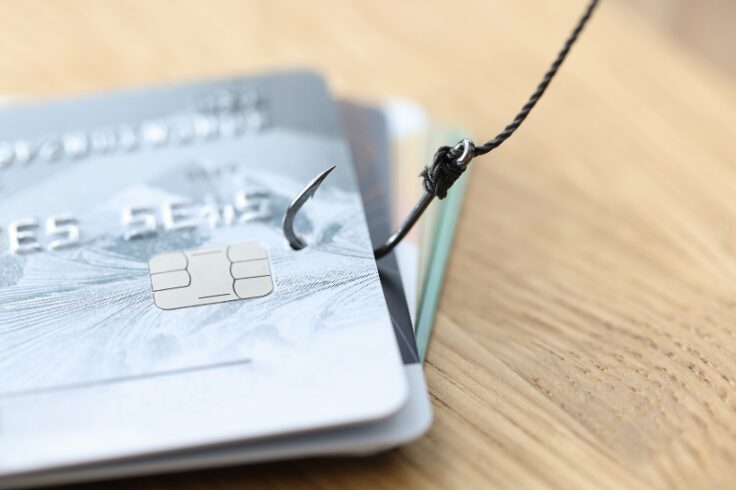Establishing Credit
Tips to Help You Manage Your First Credit Card
| 4 min read
In the last post, we discussed strategies to establishing credit when you’re starting to adult. For this post, we’ll focus on how to begin establishing credit by managing that first credit card without falling into a deep pit of debt. Here’s 8 tips that will keep your credit score, and your sanity, in good shape.
1. Understand fees and charges
A credit card’s agreement statement can be denser than a James Joyce novel, so you’ll have to break out those reading glasses and look it over carefully. Some cards charge an annual fee while others contain hidden charges, such as a card protection fee. The best way to discover these charges is to examine your monthly statement. If you see anything that’s unfamiliar on the statement, call your credit card issuer immediately.
2. Set up autopay
Nothing will sink your credit score faster than missing a monthly payment. Some of us are better than others at tracking due dates, as you probably realized during your high school and college years. To prevent missing a payment, consider setting up an auto debit on the due date. You can either plan to pay the minimum balance, the full balance (recommended) or another amount.
3. Calculate your costs
Remember that you’re not just paying for the product when you swipe that plastic, but also the interest charges. If you’ve already racked up a hefty balance, then even a small purchase means your debt load gets even heavier thanks to the interest poured on top. Paying the minimum payment each month will also increase your long-term costs, so avoid letting your balance run away from you.
4. Communicate with your credit card company
Communication is key when it comes to avoiding unnecessary fees and other complications. If you see anything funny on your monthly statement, don’t hesitate to call your issuer immediately. Usually they’ll be quick to remove the charge, but nothing will get done if you don’t initiate action. Also remember to alert your credit card company if you go out of town, as they will sometimes automatically cancel your card if they notice charges from another state because they assume the charges are fraudulent. This can be a major inconvenience if your credit gets shut down in the middle of your vacation.
5. Pay close attention to promotional offers
Seeing offers of 0% financing can entice even the most skeptical consumer. But once you take out that magnifying glass and inspect the fine print, you could find unpleasant surprises. These 0% offers usually end after 6 months or a year, at which time you’re charged the normal APR. This can work if you’re planning to use the card for one purchase, then get rid of it. But for long-term use, you’ll want to compare the post-promotional APR with other cards to see if there are better offers (and there usually are).
6. Resist impulse buys
Charging purchases can become a bad habit on par with smoking or picking your nose if you let it spiral out of control. Impulse buys and add-ons, like grabbing that trashy magazine or candy bar in the grocery aisle, will add up when you don’t regularly review your purchase history. You’ll be shocked at how quickly these small impulse buys can create a mountain of debt. Stick to using your credit card for larger, less frequent purchases rather than everyday items like groceries and gas. The exception is if your credit card offers points on these specific items (such as this one). Which leads us to…
7. Utilize reward programs
Most credit cards now offer some kind of rewards program where you earn points on qualifying purchases. You can exchange these points for cash and other merchandise to make your credit card work for you rather than the other way around. Using your points wisely involves as much strategy as a game of Risk, as each card’s rewards differ. To get the most out of your rewards program, designate a card for specific types of purchases, based on the offered rewards. For example, if you have a credit card that gives you bonus points on flights, then use this specifically for travel. If you find yourself with multiple rewards cards, the Walla.by app helps you figure out which card is best to use for each purchase.
Check out the Vantage West Connect Rewards Visa Signature, which gives you double the points on groceries, triple the points on gas and five times the points on a category of your choice.
8. Carry cash
You’ll quickly find that charging is easy…a little too easy. To avoid giving yourself a heart attack when you see that balance statement, carry some cash for small, daily expenses. Nothing beats an empty wallet an indicator that you’re spending too much. If you have a spending problem, you also might consider leaving that plastic at home to avoid temptations.
Once more: Pay on time!

Sorry if we sound like a broken record, but we can’t stress enough how important it is to pay your first credit card on time (along with all other credit cards). Late payments could result in unnecessary fees that don’t go toward paying off the principal and kill your credit score. Set your calendar, set up autopay, write the due date on your forehead with a Sharpie, whatever it takes for you to remember.
Credit cards are a great way to begin establishing credit without taking on an unreasonable debt load.If you stay on top of your spending and develop good habits, credit cards can be a valuable asset in your life rather than a burden. It’s a great way to begin establishing credit without taking on an unreasonable debt load.
Check out the selection of credit cards to start establishing credit







